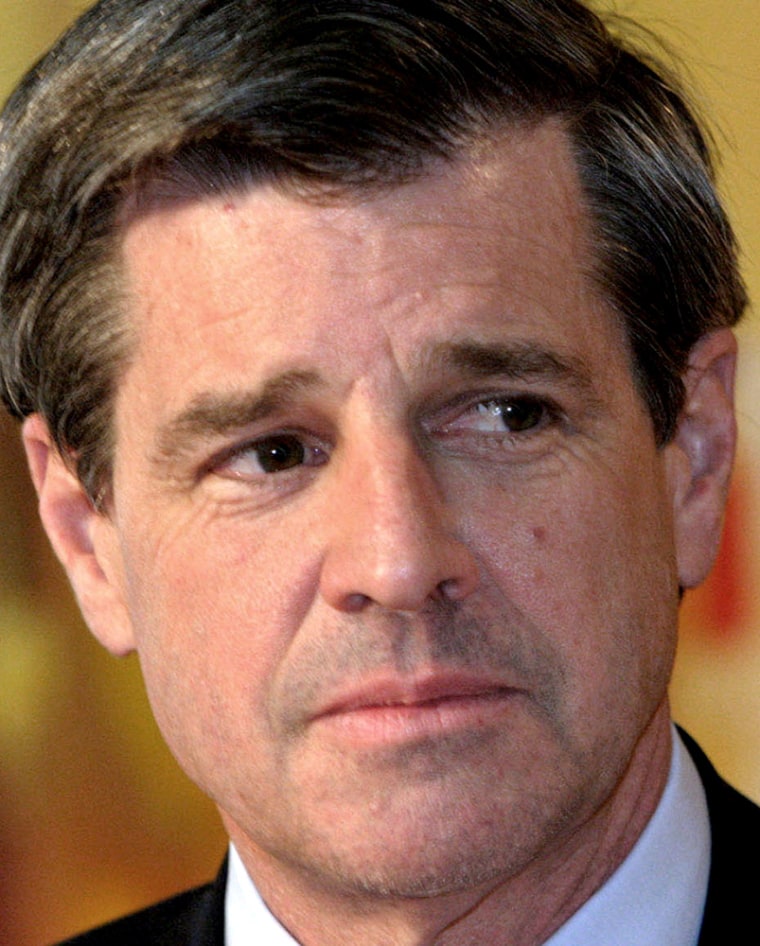The U.S. administrator of Iraq told regional officials Friday that the United States would leave Iraq if requested to do so by the new Iraqi government — although he thinks such a move is unlikely.
L. Paul Bremer told a delegation from Iraq’s Diyala province that American forces would not stay where they were unwelcome.
“If the provisional government asks us to leave we will leave,” Bremer said, referring to an Iraqi administration due to take power June 30. “I don’t think that will happen, but obviously we don’t stay in countries where we’re not welcome.”
The United States plans to keep substantial military forces here after the June 30 handover, prompting critics to question whether Iraqis will gain genuine sovereignty.
American officials have said that the terms of the U.S. military role will ultimately be determined by a status of forces agreement to be signed with the new Iraqi government.
On Thursday, Undersecretary of State Marc Grossman said the new Iraqi government will not have the authority to evict American forces from Iraq, quickly reversing a statement made minutes earlier before a House of Representatives panel.
Tricky balance?
Grossman’s comments reflect the difficult balance the U.S. government is trying to strike as it moves closer to the June 30 handover.
When first asked by House International Relations Committee members whether an interim Iraqi government could force U.S. troops to leave, Grossman stressed that Iraqi leaders wanted them to remain. He also said that the Iraqi interim constitution and a U.N. resolution gave them authority to do so.
Rep. Dana Rohrabacher, a California Republican, kept asking Grossman, “If they ask us to leave, we will leave, will we not?” Pressed for a yes-or-no answer, Grossman eventually said yes.
But he later agreed with another panelist, Lt. Gen. Walter L. Sharp, that the interim constitution and U.N. resolution gave U.S.-led forces responsibility for Iraqi security for the immediate future.
After the hearing, Grossman was asked if that meant U.S. forces would not leave if asked by the interim government. “That is correct,” he said.
U.S. officials have said that the terms of the American military role will ultimately be determined by a status of forces agreement to be signed with the new Iraqi government.
Though some officials have said such an agreement could be signed with the interim government, Grossman said it would be negotiated with the government formed after elections expected in January.
Powell reinforces message
At a news conference Friday in Washington with other foreign ministers from the Group of Eight nations, U.S. Secretary of State Colin Powell echoed Bremer's statement, saying coalition forces would leave Iraq if a new interim government should ask them to, but that such a request is unlikely.
Powell said the United States believes that a U.N. resolution passed last year and Iraqi administrative law provide necessary authority for coalition forces to remain even beyond the scheduled June 30 handover of government to Iraqis.
“We’re there to support the Iraqi people and protect them and the new government,” Powell said at the news conference. “I have no doubt the new government will welcome our presence and am losing no sleep over whether they will ask us to stay.”
But were the new government to say it could handle security, “then we would leave,” Powell said.
